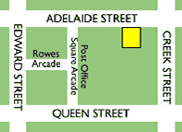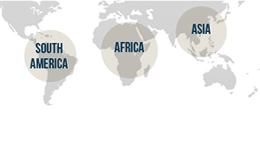Help Us Improve Access to the BCG Vaccine for Travelling Families!
November 27th, 2024 Read More »Special Information and Advice for Families
I, Dr Deb, have prepared the following tips to help make your family’s visit to our clinic as stress-free and comfortable as possible.
Please be sure to advise our reception staff if your child has significant needle phobia so that the reception staff can make arrangements.
1. Before your appointment
Fill out medical forms at home ( the reception staff will usually send the forms to you in advance) Try to arrange the children to be well-rested and well-fed at the time of the appointment, and perhaps arrange the appointment for the morning. Speak to the staff about the ICEPEN to decrease feeling of immunisations. We have this in the clinic at all times so you do not need to book it in advance. Some persons prefer to use EMLA – This is a skin anaesthetic which works by numbing the skin where an immunisation is to be given, so there is less discomfort. In my experience Emla is ideally applied to the area three hours before injection, on the exact spot that the treatment will be given – Emla patches are available from most pharmacies.
How to apply emla to decrease the pain of intramuscular vaccination
2. Mentally preparing children for having immunisations
My staff and I have given a great many immunisations to young children.
I have also seen many adults with distressing injection phobias that can begin after a single experience in childhood, so I have prepared the following suggestions for how to approach the process of bringing children to have immunisations. Each parent knows their child and these suggestions must be interpreted based on the age of the child, and parents’ knowledge of the child’s personality.
Helping children learn to deal with discomfort for the greater good of their health, is a useful childhood lesson.
I recommend parents have a discussion with the children a few days in advance of their visit, and generally just once. The discussion could be along the following lines: that the family are going to see Dr Deb, and they may need to have some information, immunisations and tablets, in order to help them stay healthy on their trip. (I have seen children get very distressed when this is left to the last minute i.e. it is ‘sprung’ on the child when they about to have their immunisation. Children do need the opportunity to mentally prepare themselves or ask questions.)
During the discussion, the child’s questions should ideally be answered in a matter of fact way. Try to speak in the same tone, as if you were describing a visit to the shops – a fairly mundane experience – needing no unnecessary fanfare. The same tone as you would say “We are having toast for breakfast” If there is any sense of drama present in the discussions, children will absorb this, and it may make things harder for them. Do not focus on the injections.
The immunisation, if needed, will be a fraction of a second out of a 30-60 minute visit. Talk to them about other aspects of the visit. For example; the family with have a chat with the doctor to learn about how to stay well on the trip and then they will see the nurse to get some tablets and maybe an immunisation. If it is helpful, for very young children, you can encourage the child to bring a special toy along to the visit – especially if the toy is going with the child on the trip. Our nurses can ‘immunise’ their toy as well.
On the day, we find it is better if siblings do not see each other have the vaccines, so we take each child to have immunisations separately. Some children manage better if they see a parent having their vaccine calmly first. Describe to the child what their ‘job’ will be during the visit. E.g. their ‘job’ is to play quietly while the doctor is talking, and to sit still if they need to have immunisations. If the child sits very still, it will feel better. During the clinic visit, we will show the parents how to hold their child a special way. This special hold will help the child feel secure and stay still.
In discussions, parents could use words to describe the feeling in the arm by saying the immunisation may be a bit uncomfortable for a moment. It is important not to say things like “this is going to really hurt and you will have to be really brave” as the child will hear “this is really going to hurt” – and think ….it must be really bad if I have to be brave!
It is best not to repeatedly remind children that the visit is coming closer. If children are reminded every day in the days leading up to the visit, the child will absorb the parent’s sense of drama and the child will become more worried.
After an immunisation, the child will be offered (subject to parental approval of course) a balloon, and they get to pick a sticker afterward. In my view, it is not ideal or necessary to promise children lavish treats for being ‘good’ as it reinforces the drama and the message that this is a big deal. We try not to use food to soothe children as it creates an unfortunate precedent for later life where maybe food is used for comfort instead of nutrition. Children can eat afterward, however, it is of note that is is better if children are not hungry or tired when they come for their visit. Hungry and tired children do not manage as well.
3. Parents Checklist
 Please bring the following to your appointment.
Please bring the following to your appointment.
- Vaccination Records for Children (and adults too!)
- Medical forms that are completed for your children and yourself. ( If we have asked you to complete them before arriving for your appointment.)
- Toys to keep your children amused – we have to limit our selection to toys that can easily be cleaned.
- Another adult, friend, or relative to help supervise young children while in you are undergoing your consultation – especially if your family is booked for pre-deployment medicals. If both parents are having a medical, both parents may be busy and our staff are not able to supervise children.
- Snacks for children – especially if your family is booked in for pre-deployment medicals as this process can take 4 hours. We do have a water cooler in the reception area.
- Nappy change gear if applicable.
We look forward to helping you make this experience a positive one for you and your family.
To print this page go here:
Mpox and risk to Travellers
August 22nd, 2024 Read More »
Understanding Japanese Encephalitis: A Travel Health Advisory
June 10th, 2024 Read More »



